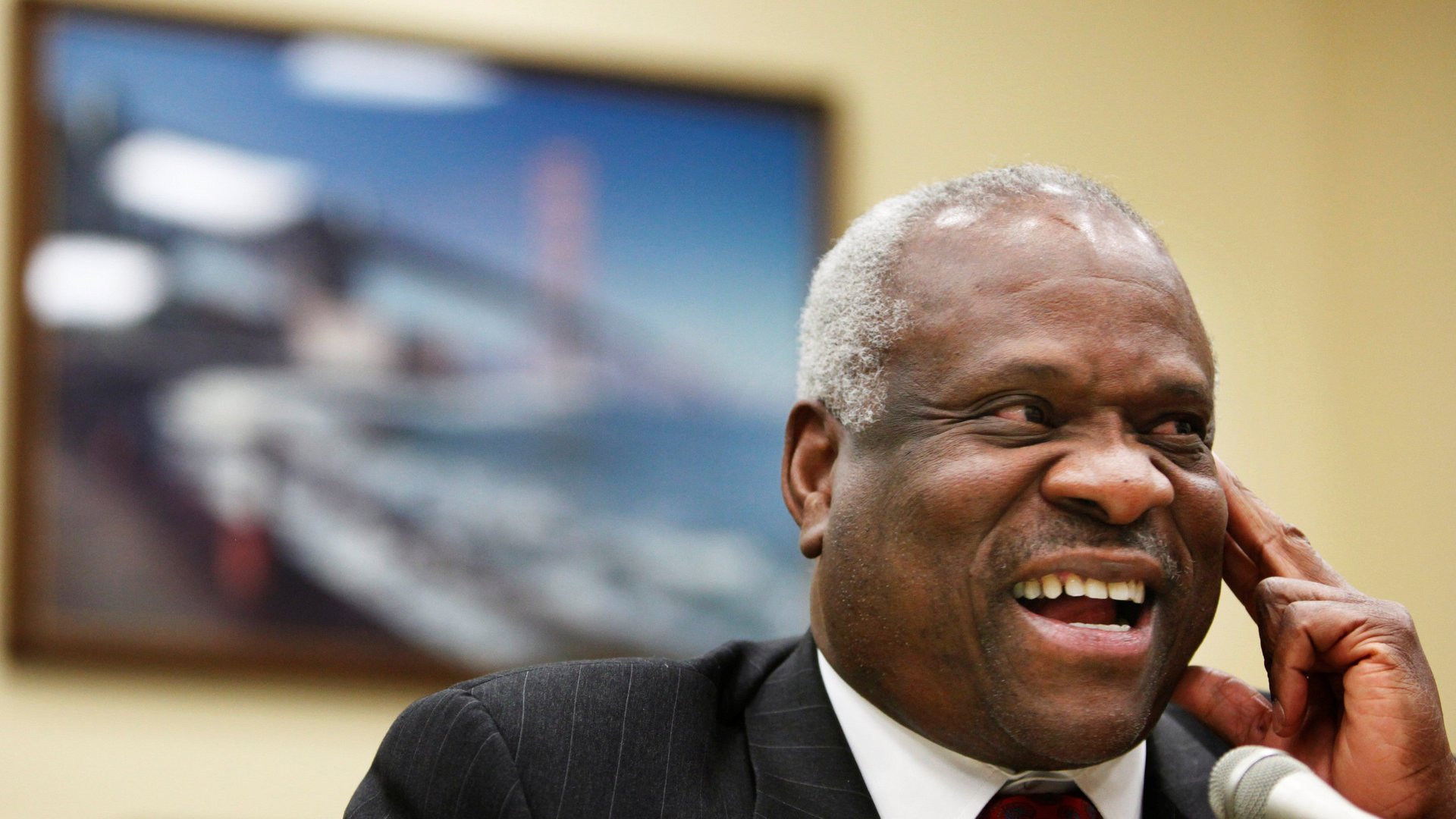The case that elicited Supreme Court justice Clarence Thomas’ first questions in 10 years
The streak is broken.


The streak is broken.
It’s been just over 10 years since Supreme Court justice Clarence Thomas asked a question during a hearing, but today Thomas broke his silence in a case about domestic violence and the right to own a gun.
Voisine v. United States, is a complicated case in which the defendant’s right to own a gun was taken away after he was convicted of injuring his girlfriend in a domestic dispute. The defendant argued that the harm was caused “recklessly,” rather than “knowingly” or “intentionally,” so he should not be barred by federal law from owning a gun for an indefinite period.
After Ilana Eisenstein, a lawyer for the government, asked the court if there were any further questions, Thomas dropped the bombshell: “Ms. Eisenstein, one question,” he interjected:
Can you give me—this is a misdemeanor violation. It suspends a constitutional right. Can you give me another area where a misdemeanor violation suspends a constitutional right?”
Thomas followed up with a string of queries, pressing about other areas in which a misdemeanor can suspend a constitutional right, referring to the Second Amendment that guarantees the right to bear arms. Eisenstein could not come up with an answer.
Slate’s Mark Joseph Stern, who was at the court during the hearing, wrote:
“The entire court perked up. Everyone shifted forward in their seats, and there was a look of shock on many spectators’ faces. We in the press section nearly fell out of our seats, though the other justices kept admirably cool, with only Chief Justice John Roberts swiveling his head in evident surprise.”
The last time Thomas asked a question was on Feb. 22, 2006, in a death penalty case. He has attributed his silence to various reasons, including self-consciousness related to his accent hailing from rural Georgia, for which he was teased when he was younger, and the sufficiency of legal briefs.
The hearing fell in just the second week during which Thomas’ mentor, the late justice Antonin Scalia, was not present. Adam Liptak at the New York Times suggested the absence of Scalia “somehow liberated” Thomas.